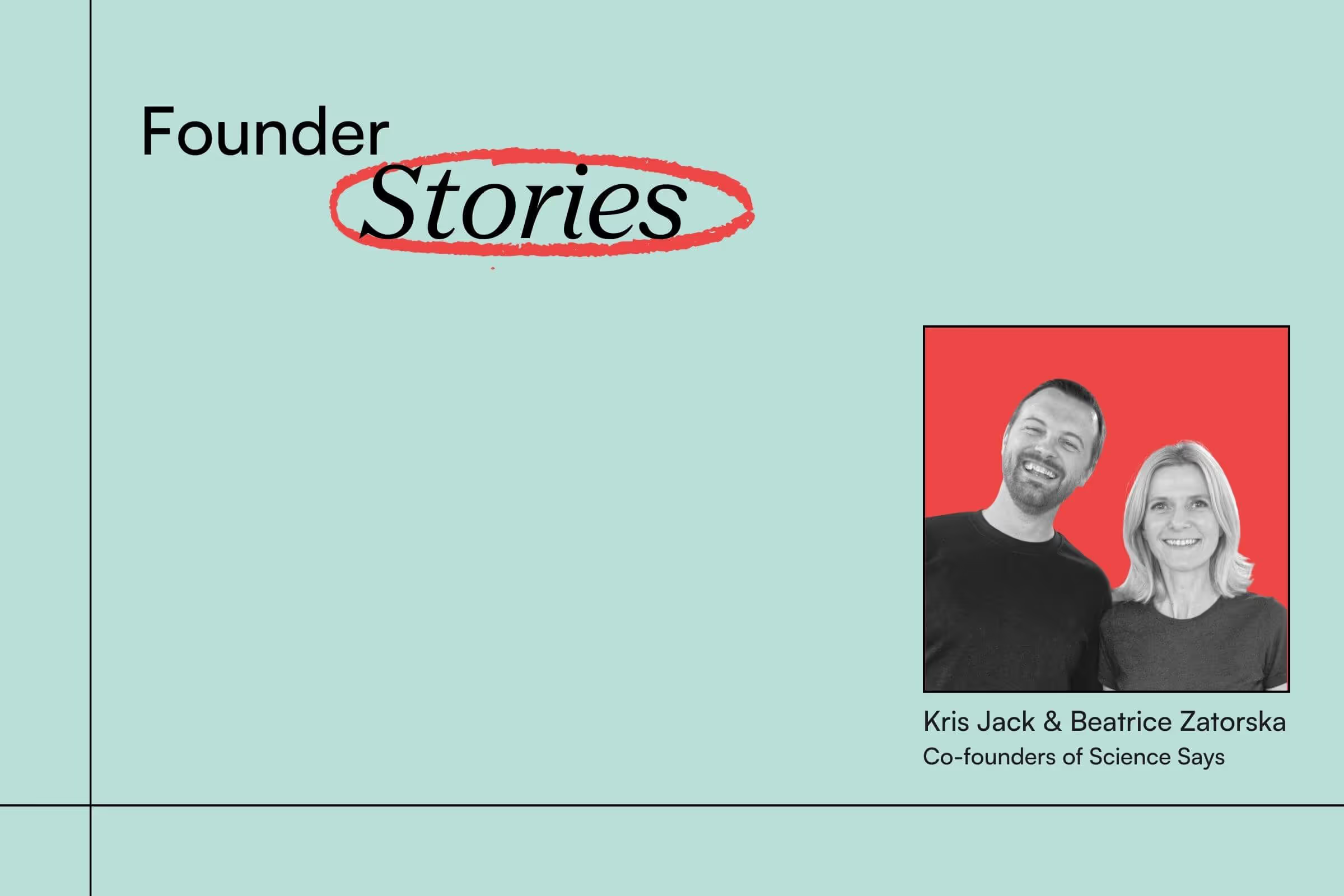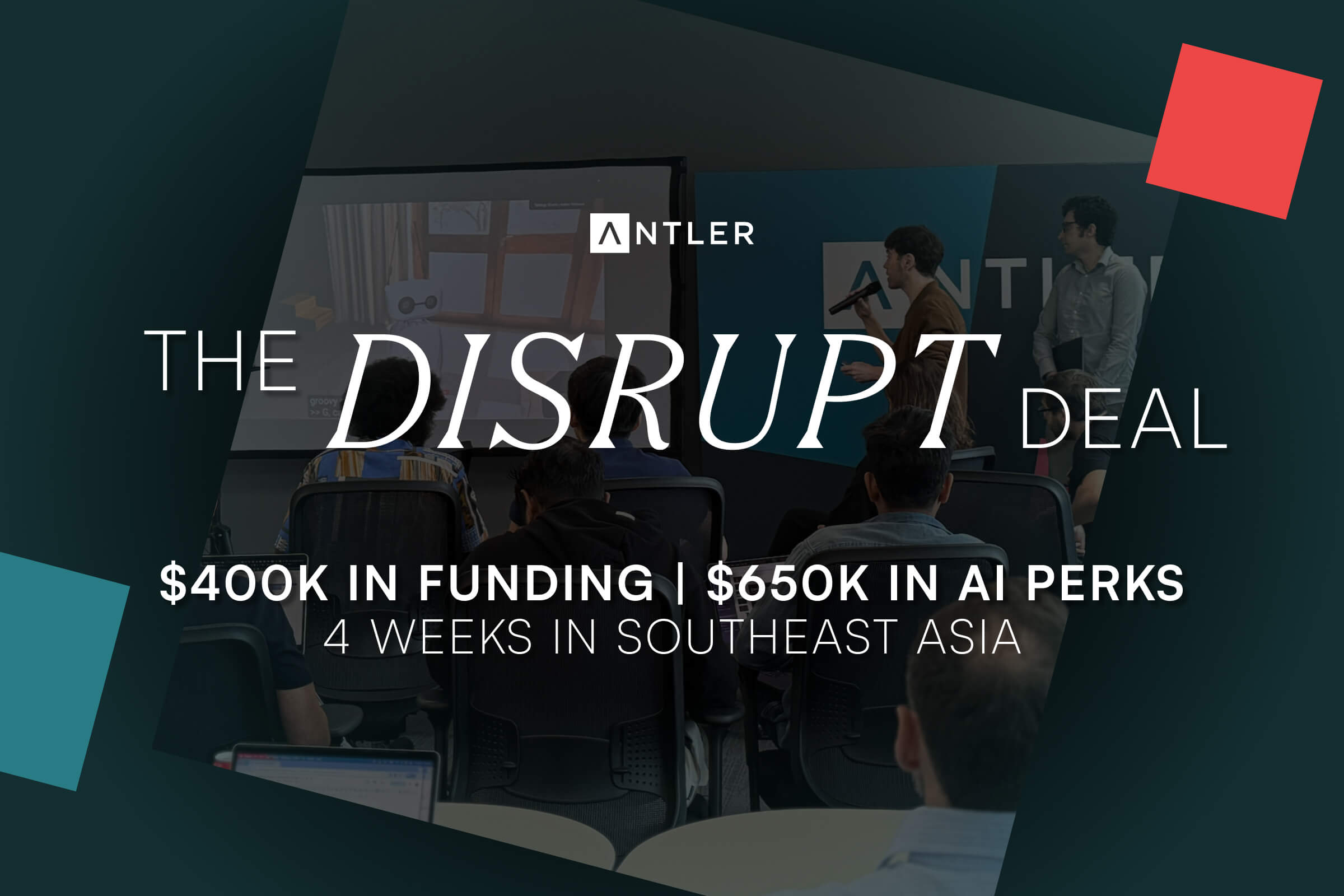This article is for my fellow founders who are entering the journey of building a startup in the UK. We had many discussions on different slack channels, and I eventually was asked to share my experience of pre-seed fundraising without having any revenue — something which takes far more effort in Britain than in the US.
We raised £300K without any revenues at the start of 2020 and only 3 months into the company operations. Sharing is caring and there is no better way than founders to learn from each other.
Personal savings
Personal savings are a very common first source of funding for many startups. Both my cofounder and I had well-paid jobs, so we could afford to become entrepreneurs. It's not often mentioned, but it is good to know that founders either do not earn anything or earn very humble salaries for the first few years. While we did not inject our own cash into the company at the start, we did live on our savings. This is not relevant for your valuation but is very relevant when you have family and commitments.
Friends and family
We talked about our startup idea obsessively to everyone all the time until, finally, our first check came from a friend of mine, a first-time angel investor who knew nothing about startups but had heard me talking about my idea for months. He gave us £50k based on his trust in me and Kris, my co-founder, and in our ability to build a great company, solve an important problem and become financially successful. Undoubtedly the promise of a SEIS tax relief was a strong argument that helped me to persuade my friend. He got £22K back from his £50K investment a year later.
HMRC, the queen of UK investors
The SEIS/EIS scheme is the main driver for early-stage startups in the UK. Without it, we would have been doomed. Try to get it as early as possible, and you will have a far better chance of attracting interest from angel investors. You need one investor's promise to get the approval from HMRC, so be as creative as you can to get it done ASAP.
The generosity of HMRC doesn't end there. The annual R&D tax relief is another lifesaver. Every year, you can claim a decent amount of money back that you spend on R&D (including part of the salaries of your tech team). Again, this is not added to your valuation, but it is cash, and the annual tax return deadline became my favourite time of the year.
Accelerators
A number of great accelerators are present in the UK, and others in countries like the US and Israel offer places to UK founders. An accelerator not only helped us truly launch our early growth but also presented us with a big check for £££ in exchange for a reasonable share of the equity. I have heard from fellow founders about all kinds of different offers, including mentorship for 50% equity, which is ridiculous. Shop around and make sure part of the commitment is also a cash investment; on average, it should be between £70k and £150k cash for 7%-12% equity. Another sign of a good accelerator is its strong network with other investors. Once you become part of their portfolio, they will try to help you raise more money. The accelerators I would recommend are Antler, Entrepreneur First, Y Combinator, Founders Factory and 500 Startups, but many others are also very good.
Angel Investors
Early-stage startup investment comes predominantly from angel investors. The UK has a decent number of wealthy individuals investing in startups, and all are after your SEIS allowance of £150k. Some of them are part of syndicates/associations, while others invest on an individual basis. The best way to meet them is through recommendations; that is how the whole startup investment business works, all the way to the XYZ series. You can meet them during events for startups, ask around your networks for introductions or just reach out on LinkedIn.
Some angels have revenue expectations similar to those of VCs before they will make a commitment. In general, UK investors (both angels and VCs) are very conservative and highly risk-averse compared to US investors, so you just need to keep searching for individuals who will fall in love with your idea and have faith in you. That is how we found three additional angel investors, who topped us up with a further £150K; we connected during a networking event, connected on LinkedIn and were introduced by our accelerator. All three of them are fantastic people who really care about the problem we are solving and, no matter how many times we pivot (we are currently on pivot number three from networking platform "Smart Tribe" to content creators platform for scientists "Science Says" and only now we have the market fit), but they always show support and provide valuable advice and further introductions.
VCs
We did not go after VCs during our pre-seed fundraising. We felt it was too early, and we did not have a good product-market fit to show to VCs. In general, this is the case in the UK, where VCs get involved in investing at the seed stage and even more often from series A and above. We also felt we had raised enough money to get us started in figuring out our product and building good traction prior to the next fundraising stage with better valuation. However, some startups manage to raise funds at this very early stage from the few pre-seed funds in Europe, but be ready to give away a lot of equity and control of your company.
What else helped?
• We came up with the MVP very quickly; literally, we had a single web page and a spreadsheet with our first 200 users to show some traction and proof of concept. At this early stage, we felt there was no point in spending too much time perfecting the MVP (also a waste of money and time), but it's important to have something to show to your first users to test your idea and to your first investors to illustrate what you are planning to build.
• Once you acquire your first investors, others will follow. When you have someone backing you up, it's like magic — you suddenly become far more attractive to other investors.
• Take notes and learn from conversations with investors. Not all comments are helpful but, from the majority of conversations, I learned a lot, and as a result, was better prepared for the next conversation.
• I practised my pitch (3 min, 5 min, 10 min, you name it!) over and over again until I hated my own voice. It really paid off! Being able to smoothly present your startup to investors at any time and capture their attention increases your chances of being invited to speak again about your idea.
• Take advice from investors on pitching to them but be careful taking advice from them on how to run your business. Only 6% of UK investors have experience building startups as founders compared to 65% in the US. Many investors promote solutions they are familiar with from their portfolio companies, but often, it will not work out for others.
• Network with other founders. There is a lot of comrade spirit between founders and we help each other by sharing tips since we all solving similar problems with tech, marketing, operational, legal, etc. Nobody else will understand you better than a fellow founder.
• Perks. We got a further £250K in vouchers and discounts for startups. Especially sweet are those from Amazon AWS, Stripe, Google. It comes in very handy in your early days. If you want a tool and they do not have special offers for a startup, ask them for a freebie to get you started. They often give something, or surely they will be soon another company offering something similar for free.
• If you offered an investment, take it right away, do not wait to open a new round. It works for later stages of investment, but when most of your cash injections come from angel investors, you do not have to play by those rules. There are a few great solutions like "top-up of previous round", advance on the next round, quick investment, etc. Seedlegals have a pretty good choice of legal solutions for it.
• Due to limited resources, we did almost everything by ourselves. Probably it took us longer to do things and we made more mistakes but I am so happy about it now. After 2 years of wearing different hats and doing all kinds of activities manually, we have learned many tricks on how to build a startup. Now we know what works for us, which tools are worth paying for, what metrics to focus on, how long each task takes and what kind of people we want on our team since we have done their jobs already.
• Cut down the noise: there are many people who will want to take your time and about 80% are not worth it. Founders are bombarded by sales pitches from recruiters, developers, pseudo-investors and wannabe mentors. There are many industry people with lots of years of experience working in large corporations offering mentorship and most of them have no experience in startups. Getting an advisor (preferably a founder who built a unicorn) is awesome but a startup business is a very different beast compared to corporate dynamics. Unless they can make introductions to investors or customers or give you unique insights into their industry, it is often not worth our time to entertain others.
• Watch out for scams. We had a scary moment with an investor who turned out to want to use us as a money-laundering vehicle. It was all perfectly orchestrated and checked by a government-recommended pro bono lawyer (it was a foreign investor); thankfully, at the last minute, we pulled the plug after some extra checking.
• We did not use "middleman" companies to raise cash. They ask for cash up front, which puts me off, as well as some equity as a success fee. The amount of time you need to spend explaining your business to them, which is constantly changing anyway, would equal the amount of time you spend on doing the fundraising yourself.
• The female founders "issue". Recently I saw in the Financial Times ranking of top 30 UK female entrepreneurs. It took as little as £18 million in revenues (no investment) to get on that ranking. At first made me think: wow, that is a low bar but then made me realise how bad the investment environment in female founders is (apparently it was 3% before COVID and now it is less than 2%). It is probably mixed of reasons: far fewer female founders in general, childcare in the UK is super expensive and complicated and apparently, investors are biased. In regards to the last point, I had a different experience. I had dozens of conversations with investors and not a single time was I treated differently from male founders. I refuse to believe that those who said 'no' based their decision on the fact that I am a woman. I was judged based on traction, my idea and all the other factors important for investors. Fairly and correctly. My take on female founder-friendly VCs is not the number of webinars talking about 'female founders' problems' but how many women are partners in those firms. Spend more time on networking with them because so many are just awesome, and they give that little bit extra to help female founders by providing good advice. Office hours for female founders are also great; grab them quickly even if you have no pitch deck yet.
• Equip yourself with resilience and persistence; fundraising takes time, it is stressful and you get a lot of rejections. Over time, we all build a thick skin to get us through this. Rejections are not personal, and the majority of investors are just guessing anyway about what will work out. Often, they are wrong.
Other sources of cash for early-stage startups we have not tried yet:
• Grants (in particular UK Innovate)
• Crowdfunding (most popular with UK startups is Crowdcube and Seedrs)
• Loans (not popular among early-stage startups, it would not be very welcome to fundraise later while having debts)
• Bootstrapping with customer money (the best scenario to raise money)
• Industry partners (a few examples of large players working directly with startups, mainly in the financial sector. There is also Dyson sponsoring annual awards for innovation and managing school of tech; Rolls Royce startup Bootcamp to name a very few.) There is no big tech in the UK creating an ecosystem of the next generation of disruptors like FAANG in the US (Facebook, Apple, Amazon, Netflix and Google). Some companies invest through VCs. Could tax incentives for corporates stimulate that collaboration and help us to get our first customers or investors from the industry (😉 HMRC)?
• One way ticket to San Francisco (met quite a few founders who got fed up with conservative Britain and headed for Silicon Valley hoping for more luck).
Additional resources we found very helpful:
• One of the best databases of investors is on https://signal.nfx.com/login and with help from places like https://www.voilanorbert.com/ you can try directly approach investors or find people who know people who know the right people to make recommendations to the right people…
• https://www.slush.org/ both annual events in Helsinki and their online events including 1:1 matchmaking sessions with angel investors. Great quality of support for European pre-seed and seed companies.
• TechCrunch and Dealroom help to figure out which investors are present in your environment (targeting with more focus is more efficient than approaching random investors not interested in your sector)
• https://seedlegals.com/, legal support for early-stage startups and a great source of navigating through that maze of information and events in the UK for founders
• https://technation.io/ — a great network for founders and some good initiatives
• UK business angel investors association: https://www.ukbaa.org.uk/resources/ to provide to your angel investors with less experience in investing as a resource
• "Venture Deals: Be Smarter Than Your Lawyer and Venture Capitalist" by Brad Feld and Jason Mendelson: great book helping to learn all the tricks about fundraising. It is written in the US context but still very helpful on this side of the Atlantic.
• "Learn from every No" interview with Tristian Walker, founder of Bevel Razor, part of the Masters of Scale podcast series by Reid Hoffman which is just an awesome podcast overall and delivers plenty of other great insights from founders who made it.











